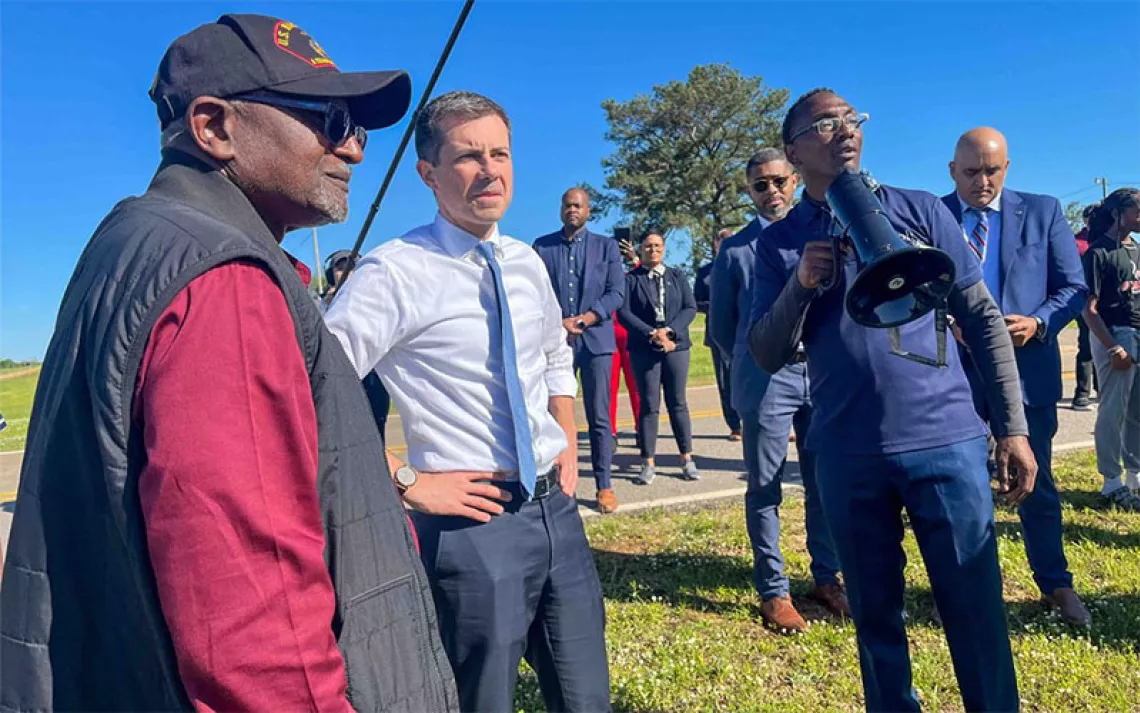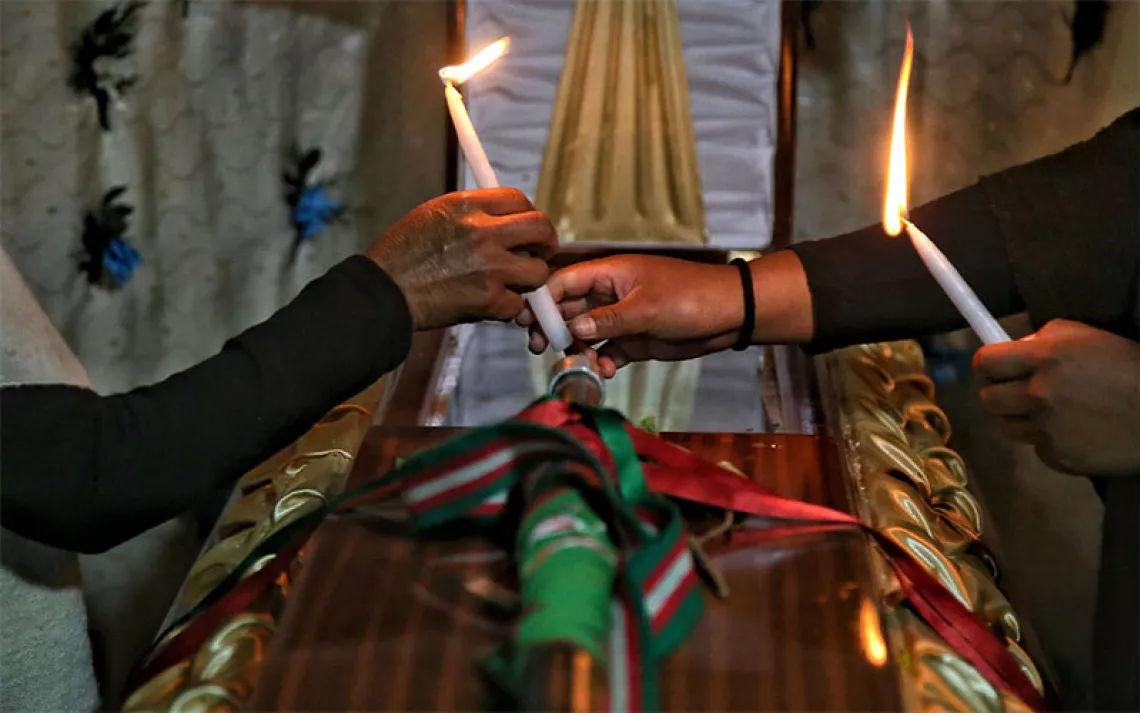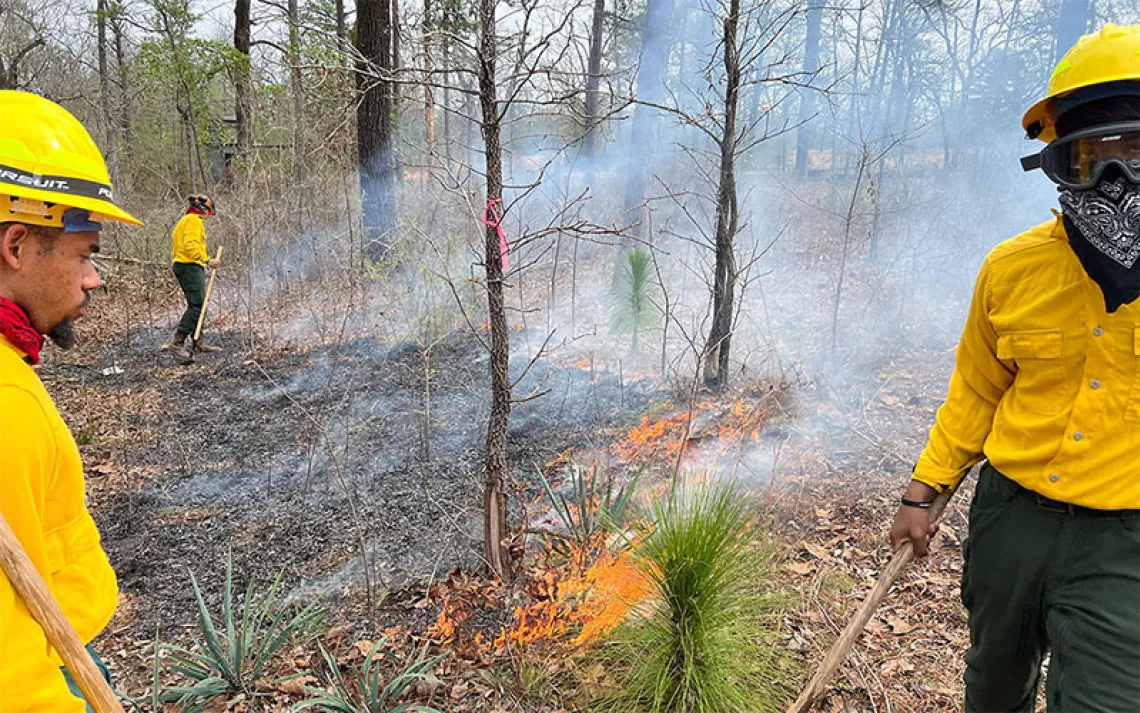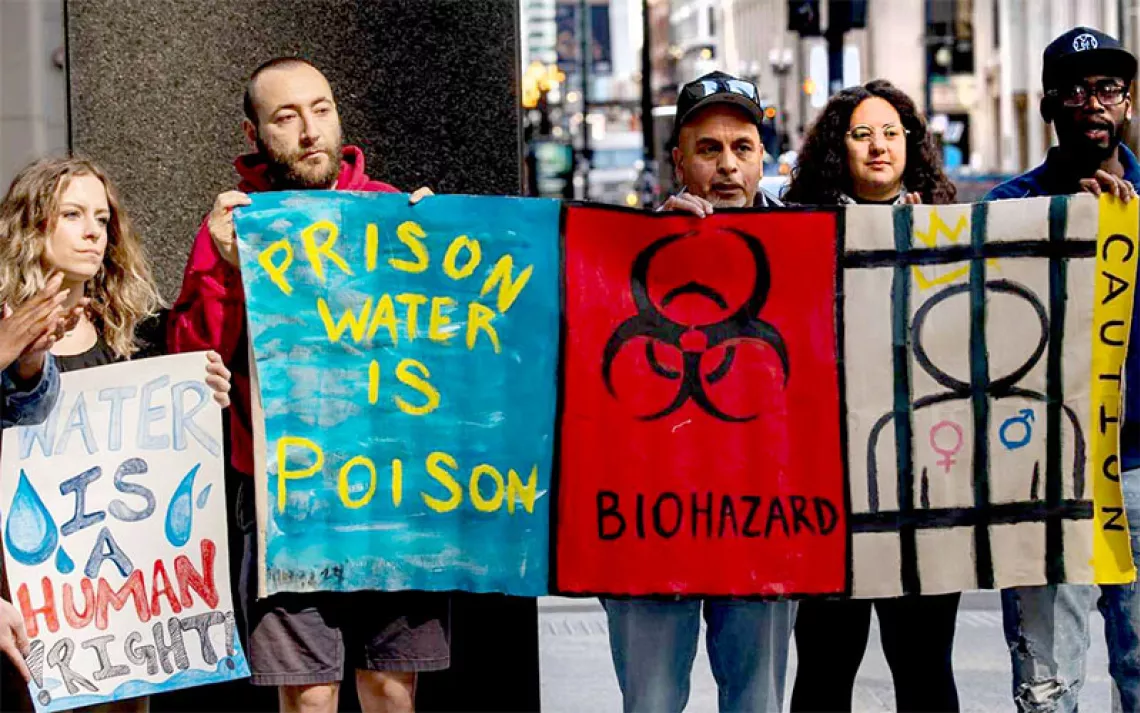Vietnam’s Pangolin Protector
Thai Van Nguyen receives Goldman Prize for saving imperiled wildlife

Photo courtesy of Save Vietnam’s Wildlife
As a boy, Thai Van Nguyen spent his days exploring the forest near his home in Vietnam’s Ninh Bình Province. He grew up just outside of Cúc Phương National Park, Vietnam's first national park and largest nature reserve. His proximity to the forest fostered a connection to nature that at 38 he still carries with him. But it also gave him an up-close view of the perils that wildlife face in Vietnam. Poaching, trafficking, deforestation, and other human pressures played out right before his eyes.
When Nguyen was eight years old, he watched a group of his fellow villagers dig out a pangolin mother and baby from their burrow and kill them to keep as hunting trophies. Pangolins, a scaly mammal native to Africa and Asia, are the most trafficked mammals on Earth. Their scales are erroneously believed to have medicinal value in many traditional cultures, and their meat is prized as a source of protein in rural communities. When threatened, they curl up into a tight ball, making them easy pickings for would-be predators, including humans. As a result, all eight subspecies of pangolin are at risk of extinction due to poaching. According to the International Union for Conservation of Nature’s (IUCN) red list, their conservation status ranges from vulnerable to critically endangered.
As Nguyen grew up, pangolin sightings in the forest near his home became increasingly rare. Eventually, he stopped seeing the animals. Watching the armadillo-like mammal disappear had a profound impact on his attitude toward conservation. “As a small child, Thai told his parents that he was going to grow up and save pangolins,” says Suzi Eszterhas, a wildlife photographer who has worked closely with Nguyen. “And that's exactly what he did.” For his work as founder and executive director of Save Vietnam’s Wildlife, Nguyen was awarded the prestigious Goldman Environmental Prize on Tuesday.
After leaving high school, Nguyen studied natural resource management at the Forestry University of Vietnam in Hanoi. This led him to his first job, in 2005, as a program coordinator for the Asian Pangolin Conservation Program, a pangolin rehabilitation and rescue initiative managed by Cúc Phương National Park. It was one of the first programs to focus on pangolin conservation in Vietnam. But Nguyen says that the federal oversight that came with being managed by a government entity made it difficult to raise money. Additionally, according to Eszterhas, the government officials that Nguyen worked with sometimes used questionable conservation tactics, like selling some pangolins back to traders to raise money for the program. To really improve pangolin conservation, Nguyen needed a nongovernmental organization that could act more independently and also raise money.
Nguyen left his government position in 2013 to study nongovernmental organization management at Montana State University. The following year, he took his newly acquired skills back to Vietnam to start Save Vietnam's Wildlife (SVW), a nonprofit whose goal is to stop the extinction of Vietnam's wildlife, including the binturong, a small bear-like carnivore; river otters; leopard cats; and of course, the pangolin.
Located in the Cúc Phương National Park, SVW has over 60 staff members and volunteers who rescue trafficked animals, rehabilitate animals into the wild, and are fighting to change the local narrative around wildlife. A great deal of Nguyen’s work includes spy-style operations in which he and his colleagues pose as poachers or potential buyers to catch criminals in the act of trafficking wild animals. With the help of park rangers, they often rescue animals on the spot. So far, they have been very successful. Since starting the program six years ago, they've rehabilitated almost 2,000 wild animals, including civets, leopard cats, pangolins, and river otters.
Nguyen’s organization also advocates for better wildlife policies and recommends improved conservation measures at the government level. For example, in 2014, the advocacy arm of SVW successfully lobbied the Vietnamese government to stop health insurance companies from covering the cost of pangolin scales. The group has also successfully convinced the government to implement steeper penalties for the possession of snares or hunting dogs in areas where hunting is prohibited. Another milestone includes persuading the government to increase the protection status for civets, linsangs, and pangolins.
"Thai is really to be credited for a lot of the policy changes that have been made on pangolins in Vietnam," Eszterhas told Sierra. "He is one of the most inspiring conservationists I've ever worked with."
In addition to advocacy and wildlife rescue, Save Vietnam’s Wildlife also focuses on education and outreach to local communities. Nguyen’s connection to Cúc Phương National Park gives him unique leverage in this part of Vietnam. He understands the challenges that people in rural Vietnam face and routinely meets with wildlife traffickers, poachers, and villagers to open up a dialogue around pangolin conservation. He also conducts surveys within communities to determine their needs. This information is evaluated against conservation requirements for target species. Together, the data points are used to create a plan for wildlife management. SVW also hosts field days in the park for youth groups so that young people can connect with nature. One of Nguyen's ultimate goals is to foster in kids a love of nature, so that future generations share the same affinity for wildlife that he has. More recently, Nguyen was elected to be vice chairman of the IUCN Species Survival Commission (SSC) Pangolin Specialist Group, a volunteer network that advises the IUCN on the conservation status of pangolins.
Despite all his hard work, Nguyen can't believe he won the Goldman Environmental Prize. "When I heard that I got the award, I was at home at night. I got the call through WhatsApp," says Nguyen. "At first I was so surprised. I didn't know who nominated me for the prize. It's a whole life twist." But it's one that he welcomes. Not only is the award a great honor, he says, but the prize money will also go a long way in helping him further SVW’s mission. "I want Save Vietnam's Wildlife to stay forever. We want to make people more interested so that they get involved in wildlife conservation."
 The Magazine of The Sierra Club
The Magazine of The Sierra Club



